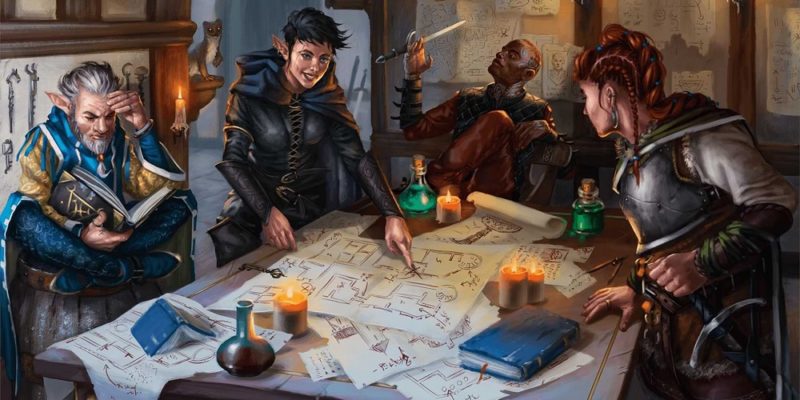
[ad_1]
There are a lot of paths to your first time as a Dungeon Master. Maybe you’ve been playing for a while and finally want to take a peek behind the screen. Maybe you and your friends are all new to Dungeons & Dragons, and you’ve decided to take the reins. Regardless, if you’re finding yourself about to sit down to run your first D&D games as DM soon, we’re here to help.
We’ve compiled a few tips, as well as some videos and other suggested resources for getting started running your first D&D campaign.
What Is a Dungeon Master?
The Dungeon Master is a vital role to the D&D table. While players will bring their characters to the game, the DM will provide everything else. But what does that actually mean?
In basic terms, the main responsibilities of the DM are to narrate the adventure, control the monsters during combat, roleplay any nonplayer characters (NPCs) that the party might encounter, and help move the story along. There’s more to it than that, but we don’t want to overwhelm you. You’re just getting started!
What’s an NPC?
For those just getting used to roleplaying games, NPCs refer to any characters in the narrative that aren’t portrayed by the players. This includes anyone from a barkeep that players might hit up for information, antagonists they may encounter deep in a dungeon, to strange women lying about in ponds distributing swords. Having a nice stable of NPCs is a great first step to filling out your fantasy world. Keeping notes about them and having a few ready for your players to encounter is a great strategy.
Your First Adventure
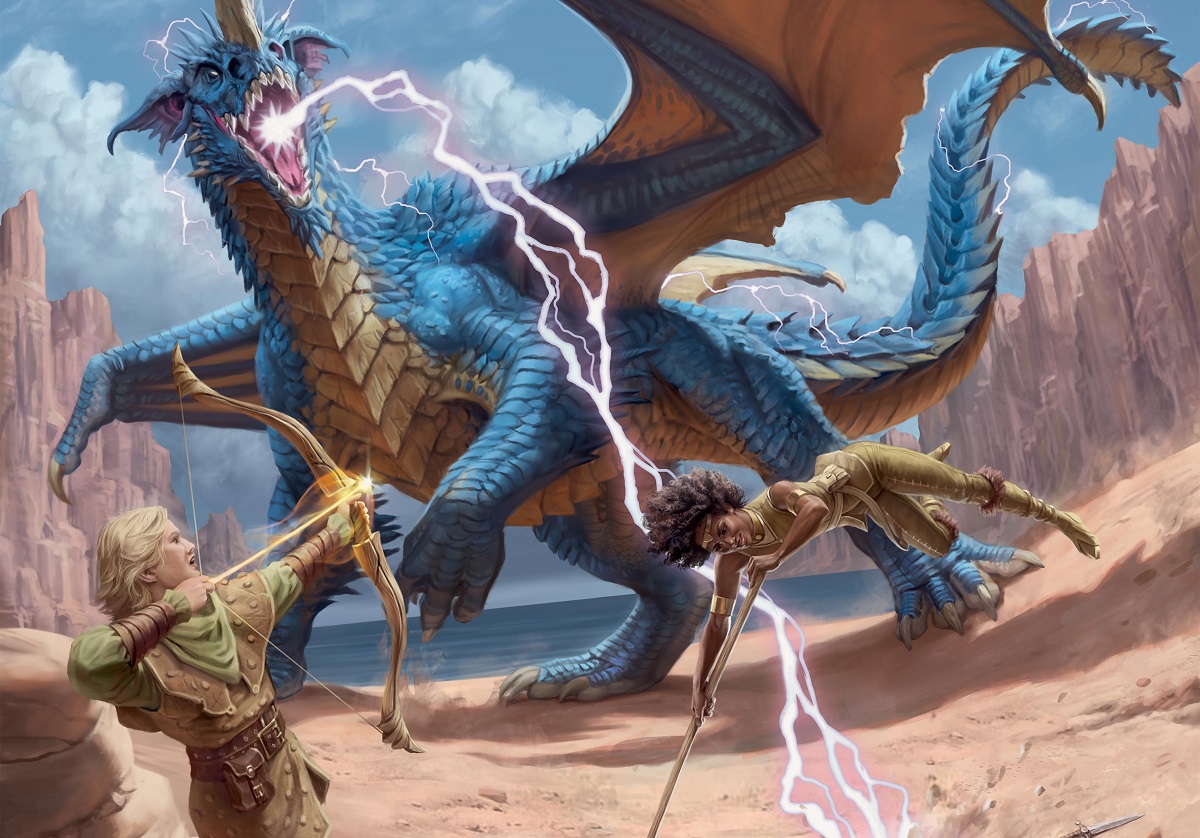
If you’re looking for an adventure to kick off your DMing tenure, the new D&D Starter Set comes complete with a ready-made campaign, Dragons of Stormwreck Isle. To get a close eye view on what running a D&D encounter entails, we’ve got a comprehensive walkthrough video for running the first encounter: Drowned Sailors.
Once you’re feeling comfortable enough to run that encounter, you’ll be on your way toward continuing the rest of the Dragons of Stormwreck Isle adventure. You can read through the text of the adventure, and check out another walkthrough video to build your confidence for running it.
Claim Your First Adventure At No Cost
While preparing your early campaigns, we offer the starter adventure Lost Mine of Phandelver at no cost with your D&D Beyond account. This adventure takes your players through a quest that leads them from 1st to 5th level, and offers several side quests, puzzles, and NPC interactions. I’m especially a fan of the first major encounter, Goblin Arrows, because it offers a short, entertaining dungeon crawl that gives players a nice sampler of the various things they’ll experience in a D&D game.
7 Tips for New DMs
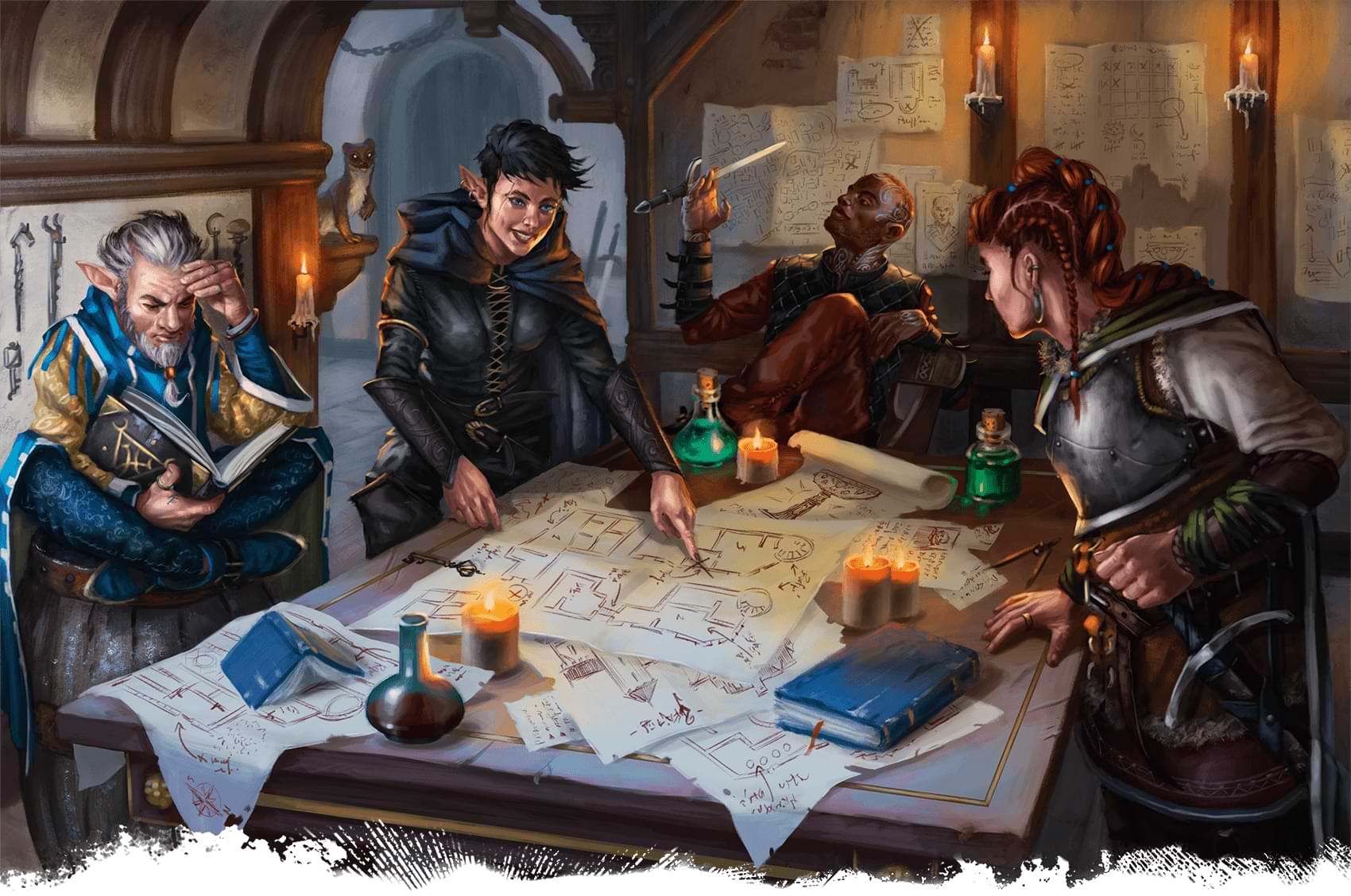
It’s easy to get overwhelmed as you begin your DM journey. So here are just a few basic things that you might not find in any rulebook but are good things to keep in the back of your head, or even listed on a post-it note on the back of your DM screen, to remind yourself to take a breath.
1. You Don’t Need to Know All the Rules
One of the most intimidating aspects of starting to DM is feeling like you need to assign yourself a task of learning every nook and cranny of lore ever written. Here’s the neat thing, you don’t. While it is highly advised that you get comfortable with the basics, such as skill checks, initiative order, and things specifically relevant to your campaign, it’s also OK to check the book. Most DMs do, even DMs who run games professionally.
2. Communicate With Your Players
There’s a false image sometimes of Dungeon Masters as the opponents of the players. Of being the scheming antagonist hiding our sinister secret behind a screen. But in reality, when you’re DMing, you’re working with the players to run the game and tell the story. Yes, you do control the monsters and set up challenges, but you’re doing so in service of making the game fun and interesting for everyone at the table. So when there is something that you feel needs to be talked out, do it! Maybe it’s just asking a player to more clearly explain what they’re trying to do so you can tell them what to roll. Or noticing if players missed a plot detail and making sure they understand what has happened so far. Much better to talk stuff out as a team than let either you or your players grow frustrated.
3. Practice Makes ‘Better,’ Not ‘Perfect’
There is no such thing as a perfect DM. Every DM will have things they excel at and things they’re weaker on. Maybe you’re excellent at crafting mysteries but struggle to keep the momentum going in combat. If you recognize things in your DMing that you wish you were better at, try practicing them. Ask some friends to let you run a few combats for them, just to get the hang of it, for example.
4. It’s OK to Start Small
Trying to jump into a full, book-length campaign as your first foray into DMing might feel a little daunting. If you just want to get your feet wet, try running some one-shot adventures, such as those found in Candlekeep Mysteries, Journeys Through the Radiant Citadel, or Keys from the Golden Vault. The adventures in these anthology books can be run on their own or strung together into an episodic campaign if you and your players get into a groove and you want to continue with the same characters.
5. Be Flexible
No matter how much you prep or how much you plan, at some point your players will throw you an absolute curveball. They may opt to solve a problem with a method you never saw coming. They may become obsessed with a random NPC you described next to them at a tavern, instead of the quest-giving NPC you put over in the corner. They may insist on immediately following threads you had only intended to tease for later. Be willing to follow the momentum and shift your plans accordingly. Maybe that fun NPC is now your quest-giver, or can lead your players in that direction somehow, for example.
6. Prep to Your Comfort Level
A lot of DM advice can run the range of “don’t overprepare” to “prepare for everything.” But both suggestions are intimidatingly vague and ultimately not very helpful!
If you’ve never run a game before how would you know what preparation is or isn’t necessary for you? As you figure out your first sessions, be honest with yourself about which aspects of the adventure you really want to make sure you have completely prepped and which stuff you’re okay being loose on. It’s different for everyone. You may need to have sheets of monster stats ready to go, or you may need to have maps prepared for every possible location. Or you might be more comfortable having a basic quest target in mind and then using a published map and a random encounter generator for combat along the way. Both approaches have the potential to make fun and exciting games.
7. Don’t Worry About Being a Voice Actor… Or Even an Actor
This valuable bit of advice for roleplayers is doubly true for Dungeon Masters! DMs, especially new ones, often feel a bit pressured to have a whole catalog of character voices ready to go for each and every NPC the players will encounter. If you’re someone for whom doing various voices and characters is part of the appeal and fun of running a game, then absolutely do that! But if you’re one of the many, many people for whom this sounds terrifying, it’s perfectly fine to give all of your characters your own voice or even to be more descriptive about what they’re saying instead of trying to recite long bits of dialogue as the characters.
Resources for New Dungeon Masters
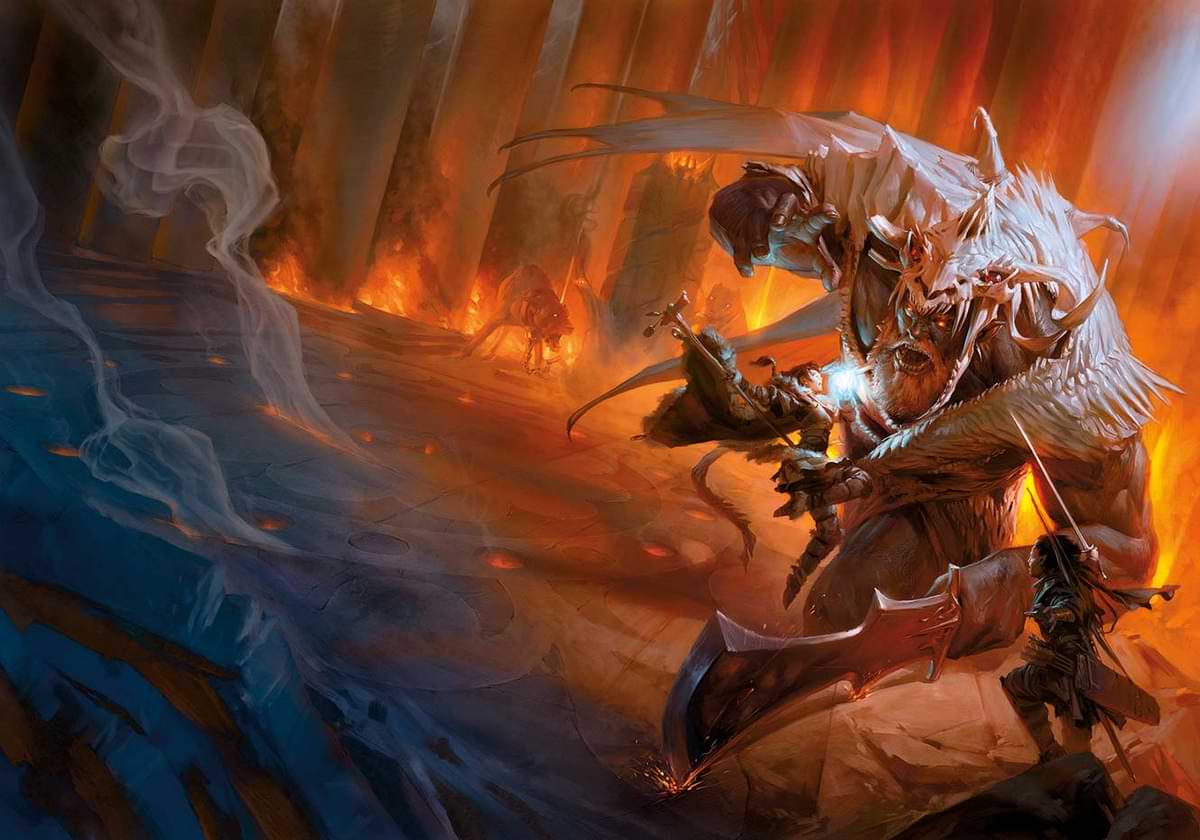
Core Rulebooks
You can run D&D games using just the information found in the basic rules, but here are some of the resources for DMs:
Dungeon Master’s Guide
The Dungeon Master’s Guide is exactly what it says on the tin. This book aids you in creating NPCs, rules for more complicated gameplay such as chase scenes, and even details on the various planes in the D&D multiverse, just to name a few of the many useful resources you’ll find in its pages.
Player’s Handbook
Though it is more geared toward players, a DM should have some familiarity with the Player’s Handbook. This book can give you deeper insight into the species, classes, backgrounds, and spells your players have chosen for their characters so you can have an idea of what to expect in your early games, and to be able to discuss questions they might have about how different aspects work within the narrative.
Monster Manual
The monsters found in the basic rules give a taste of the adversaries your players can face off against in battle. The Monster Manual expands on these and includes some of the most classic creatures in the D&D lexicon. You can find info like a breakdown of the main types of dragons, the coven abilities of hags, and even an assortment of stats for NPCs on the go.
Your Next Journey
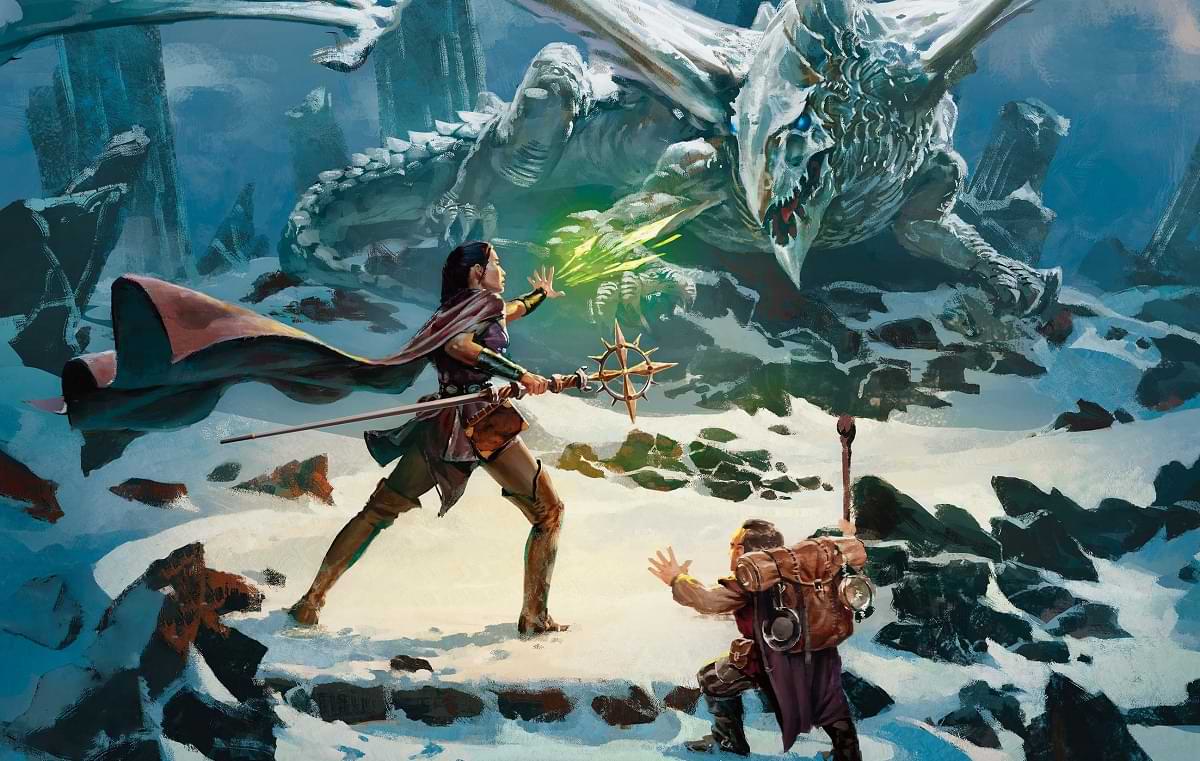 For DMs looking to expand their gameplay experience even beyond the basic and core rules, here are some great next steps:
For DMs looking to expand their gameplay experience even beyond the basic and core rules, here are some great next steps:
Essentials Kit
The D&D Essentials Kit can serve as both a supplement or alternative to the Starter Set. The Essentials Kit comes with its own adventure, Dragon of Icespire Peak, as well as some spell cards, and a poster-size map. The Essentials Kit is a great intermediate resource for newer DMs who may feel ready to move beyond their first adventures but don’t want to jump all the way into an epic-length campaign.
Homebrew
D&D has a wide assortment of published campaigns, spells, magic items, and more. But part of the fun of running a campaign are the personal flourishes you’ll bring to the table. Homebrewing is the act of creating your own personal content to include in your games. You can build entire adventures, make up personalized magic items for your players, and even draw out your own dungeons. If you’re looking for some inspiration to begin your own homebrew journey, check out the many amazing homebrew creations made right here by the D&D Beyond community.
Videos
The team here at D&D has worked hard on video content to help you strengthen your gaming skills. Here are a few of our favorite videos created with new DMs in mind:
While there is typically more work involved in DMing than in being a player, it is an extremely rewarding experience for many. The thrill of seeing a narrative you’ve been prepping come together to the delight of your players is a pretty unique rush. It can be fun to chase that feeling over and over again, especially as you grow. While the tasks of a DM are plentiful, hopefully these tips and resources can help you get started on a long and exciting journey of running the game for your adventuring party.
Riley Silverman (@rileyjsilverman) is a contributing writer to D&D Beyond, Nerdist, and SYFY Wire. She DMs the Theros-set Dice Ex Machina for the Saving Throw Show, and has been a player on the Wizards of the Coast-sponsored The Broken Pact. Riley also played as Braga in the official tabletop adaptation of the Rat Queens comic for HyperRPG, and currently plays as The Doctor on the Doctor Who RPG podcast The Game of Rassilon. She currently lives in Los Angeles.
[ad_2]





